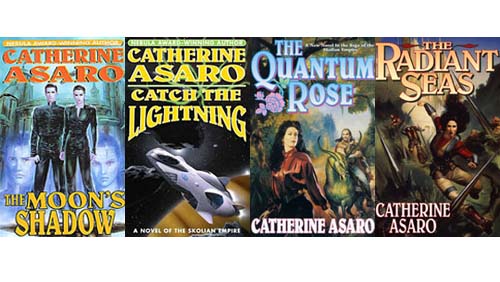Loren Coleman is the father of American cryptozoology, or the exploration for animals whose existence is generally doubted. There’s more to it than Bigfoot and the Loch Ness Monster, Coleman says.
All Articles
A double problem faces the American arts: declining government funding and a shift of priorities in the private sector away from cultural patronage. A new approach is needed.
As women in rising countries like China, Iran and Turkey lead increasingly independent lives, they are having children later in life and in fewer numbers which could prevent the much-feared population crisis.
Americans of European descent have a moral obligation to advocate for legal Mexican immigration because their ancestors once benefited from the same land, writes Conor Friedersdorf for The Atlantic.
Empires, big business and modern communication and transportation technologies account for the rise of sports, which today has reached near-mania, writes Intelligent Life Magazine.
After decades of research and testing, oncologists have found treatments that demonstrably prolong the life of patients with melanoma, lung cancer and leukemia.
The Pentagon is on the lookout for 260,000 classified U.S. embassy messages that have allegedly been given to WikiLeaks by a former American intelligence analyst in Iraq.
Prince Charles, England’s royal environmentalist, believes that the Quran teaches important environmental lessons such as being one with nature and living within the environment’s limits.
“As U.S. employment patterns evolve, a diploma is no longer a guarantee of a better job and higher pay,” says the L.A. Times. Vocational labor is gaining most as the economy recovers.
“Far from making us stupid, new media technologies are the only things that will keep us smart,” says Steven Pinker in his Op-Ed for the New York Times.
Leave it to an Italian art publisher to do an American artist right. Skira’s Edward Hopper, distributed in the United States by Rizzoli, may be the finest single volume visually […]
Following on the somewhat silly Times cover piece on how distracted we all are, itself in opposition to Steven Pinker’s brilliant Times Op-Ed today, Walter Kirn’s contribution to The Atlantic’s […]
A funny satire on the Helen Thomas story jokes that Ari Fleisher, who appeared on cable news shows to condemn Thomas, is, politically speaking, a completely irrelevant person. But when […]
The Senate defeated a bill that would have prevented the Environmental Protection Agency (EPA) from regulating greenhouse gases as pollutants under the Clean Air Act. Large greenhouse gas emitters, like […]
Past Big Think interviewee Dr. Harry Ostrer made headlines today for discovering a genetic closeness between the two Jewish communities of Europe, the Ashkenazim and the Sephardim. According to the […]
Abe Foxman, Director of the Anti-Defemation League, stopped by Big Think today to talk about the state of anti-Semitism in America today. Among other things, we asked him if it […]
There was a philosopher once who had no patience with geekish hype about information technology. This application, he wrote, would never make people smarter or better. In fact, it made […]
Urban farming has been one of the biggest socio-environmental trends of late. But, so far, it’s been a fairly high-commitment, high-maintenance game requiring a demanding amount of time, resources and […]
Glenn Roberts, the founder of Anson Mills in Columbia, S.C. wants to save Southern food culture, one grain at a time. He thinks the traditional cuisine of the South is […]
Catherine Asaro, the bestselling science-fiction author, uses concepts from physics and math to inform the fantastical stories of her characters. In a recent interview with Big Think, Asaro describes how […]
Today I review Deborah Rhode’s excellent book, “The Beauty Bias: The Injustice of Appearance in Life and Work” (Oxford University Press, 2010) for Working In These Times. Here are a […]
Sustainability obviously means a lot to the founder of the Copenhagen Climate Council. But Erik Rasmussen, also the CEO of Scandinavian’s leading independent think tank Monday Morning, isn’t sugar coating […]
The L.A. Times takes aim at Apple in its editorial, saying the “bare-knuckled competitiveness” that helped it ascend may now be a liability.
Instead of bows and arrows, Brazil’s Surui people are using the Internet, GPS and Google Earth to stop the destruction of rainforest, reports Juliane von Mittelstaedt
A major surprise from two genetic surveys — and of great interest to historians — is the genetic closeness of Europe’s two Jewish communities, explains Nicholas Wade. rn
“South Africans live in separate but parallel worlds, and old divides continue to exist, 16 years after the end of apartheid.” Ullrich Fichtner on the violence, victories and hope.
With Asia expected to overtake Europe in pharmaceutical sales, researchers are focusing on the predominant diseases, and the medicines most likely to work, in emerging markets.
Worried that Twitter is shrinking attention spans, search engines lowering intelligence? Steven Pinker reassures us that I.T. is actually keeping us smart.
I.T. is waking up to the benefits of minimalism thanks to feature fatigue among consumers and strong demand from less affluent consumers in the developing world.
Meghan Daum opines on beauty amid a new book on workplace discrimination against the “unattractive” and a lawsuit by a woman claiming she was fired for being too attractive.











